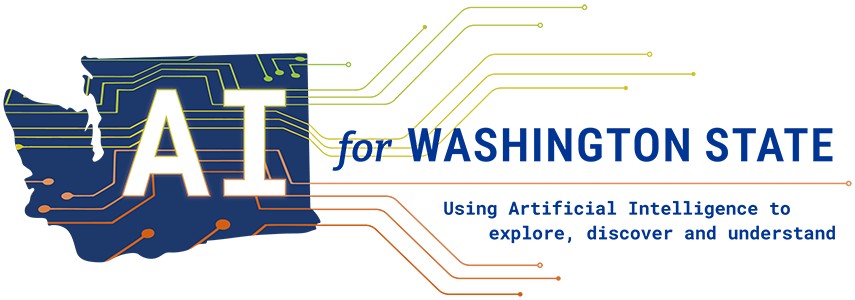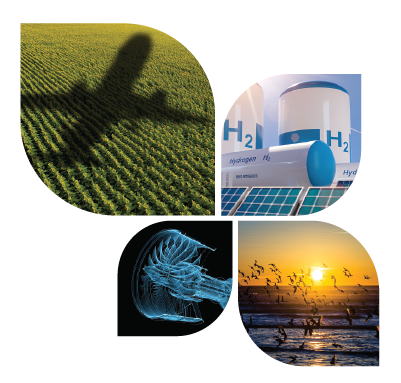Publication
Artificial Intelligence in the Conduct of Research in Washington State
PREFACE
Each year at its annual symposium, the Washington State Academy of Sciences features a topic of critical importance to both Washington State and the world. In 2024, the 17th WSAS Annual Symposium examined a topic that is not only critically important but also has been making headlines: artificial intelligence.
The 2024 symposium had the highest attendance of any to date, reflecting the many ways in which AI has already begun to affect our lives. Today, AI is poised to radically transform workplaces, businesses, governments, communications, the sciences, and, quite possibly, the entire structure of society. Some of these impacts can currently be foreseen, at least in
broad outline. Others will be largely unanticipated.
Several WSAS members, under the skillful chairmanship of Michael Goodchild, emeritus professor at the University of California, Santa Barbara, dedicated time over many months to designing the symposium’s agenda and enlisting speakers. In addition to Mike, I would like to acknowledge the other members of the planning committee: Deborah Gracio, associate
laboratory director in the National Security Directorate of the Pacific Northwest National Laboratory; Eric Horvitz, chief scientific officer at Microsoft; Ed Lazowska, professor in the Paul G. Allen School of Computer Science and Engineering at the University of Washington; and Mari Ostendorf, vice provost for research at the University of Washington.
The symposium featured both broad and focused perspectives on AI. A general introduction to the topics by Eric Horvitz (chapter 1) followed a presentation by Marcia McNutt, president of the National Academy of Sciences, describing the many activities underway at the National Academies of Sciences, Engineering, and Medicine related to AI and its applications, along with opportunities for synergy between the national and state levels (chapter 2). A lunchtime presentation by Magdalena Balazinska, director, professor, and Bill & Melinda Gates Chair at the University of Washington’s Paul G. Allen School of Computer Science and Engineering, described the organization and planned activities of the recently created
Artificial Intelligence Task Force for Washington State (chapter 3).
Three panels of presenters explored the implications of AI in the fields of climate and sustainability (chapter 4), agriculture and wildfire (chapter 5), and health and the life sciences (chapter 6). A final panel examined the ethical issues, policies, and regulations involved in conducting research using AI (chapter 7). Chair of the planning committee Michael Goodchild summarized some of the most important take-away messages that emerged from the day’s presentations and discussions (chapter 8).
I would like to acknowledge the sponsors of the symposium: the Washington Research Foundation, the Pacific Northwest National Laboratory, the Washington Technology Industry Association, Madrona Ventures, the Museum of Flight, the Washington State Department of Agriculture, and the National Science Policy Network. I would also like to thank the WSAS staff for so ably organizing and running the event: Emma Rogers, Nichole Wamsley, Tristan Fehr, Renske Dyedov, P. Joe
Conry, and especially the academy’s executive director, Donna Gerardi Riordan.
The mission of WSAS is to explore science in the service of Washington State. The 2024 symposium demonstrated how AI developed and applied in our state could improve the lives of people not only in Washington but around the world.

John Roll
WSAS President 2023 – 2024
Professor of the Elson S. Floyd College of Medicine, Vice Dean of Research Emeritus
Washington State University


